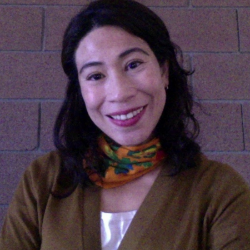On the Basis of Cultural Identity: Migration, Cinema, and Neoliberalism in the Andes (Lorena Cuya Gavilano)

When:
Tuesday, October 29, 2019
5:00 PM - 6:30 PM CT
Where: Crowe Hall, Room 1-132, 1860 Campus Drive, Evanston, IL 60208 map it
Audience: Faculty/Staff - Student - Public - Post Docs/Docs - Graduate Students
Cost: Free
Contact:
Linda Remaker
(847) 491-7980
linda.remaker@northwestern.edu
Group: Latin American and Caribbean Studies
Co-Sponsor:
Department of Spanish and Portuguese
Category: Academic
Description:
Migration cannot be understood, reimagined, or visualized without affects, but affects change according to economic policies. In the Andes, neoliberal agendas and cultural struggles of identity have influenced the construction of affective cinematographic aesthetics that legitimize (or not) the Andean migrant within national imaginaries. This presentation will explore how different cinematographic approaches to migration reflect and shape how citizens of the same country think about internal migrants, themselves, and the nation. In the case of Bolivia and Peru, such cinematographic approaches are quite different. On the basis of cultural identity, one projects resistance, while the other reflects the welcoming of and adaptation to neoliberal policies. The visual image of Andean migrants, then, is the result of struggles of cultural identity and institutional attitudes toward economic modernization.
Lorena Cuya Gavilano received her doctorate in Spanish and Latin American studies from Penn State University and currently holds a position as an assistant professor of Spanish at Arizona State University. Her areas of specialization are contemporary Latin American film and literature, and cultural studies. Her research focuses on national and transnational migratory flows and explores how cultural productions reflect different epistemic, aesthetic and emotional experiences, as well as resistance and decolonial practices.
Her current research is about the affective epistemes and aesthetics of migration in Andean countries such as Peru and Bolivia. Other research interests include the cultural connections between the Chinese and African Diasporas in Andean countries and Latin American ecocriticsm. The unifying theme of her research is the flow and transnationalization of narrative works, people, and ideas in the context of global socio-economic exchanges, an aspect that is fundamental to understanding contemporary Latin American society in the so-called Age of Migration.
co-sponsored by the Department of Spanish & Portuguese